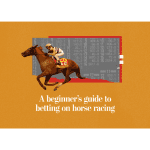Understanding Horse Racing
Horse racing, a popular sport that dates back centuries, involves horses competing against each other in a race to the finish line. Typically run on oval tracks, these races can vary in distance from short sprints to longer endurance races, each requiring different levels of speed and stamina from the horses. Jockeys, the skilled riders who control the horses during the races, play a crucial role in guiding their horses and making strategic decisions to secure a win.
The outcome of a horse race is determined by various factors such as the horses’ abilities, the track conditions, and even the weather on race day. Spectators and bettors alike are drawn to the thrill and excitement of watching these majestic creatures sprint down the track, their hooves pounding against the ground as they strive to outpace their competitors. Understanding the nuances of horse racing can add an extra layer of enjoyment to the experience, whether you’re a casual observer or a seasoned bettor looking to place a wager on the next race.
Types of Horse Racing Bets
When it comes to horse racing bets, there are several options available for punters to choose from. One of the most common types of bets is the Win bet, where you are simply betting on a specific horse to come in first place. This is a straightforward bet with a clear outcome – if your chosen horse wins the race, you win the bet.
Another popular type of bet is the Place bet, which allows you to bet on a horse to finish in either first or second place. This bet provides a bit more flexibility than the Win bet, as your chosen horse doesn’t have to win the race outright for you to win your bet. However, the payout for a Place bet is typically lower than that of a Win bet since you are hedging your bet by covering more than one possible outcome.
The Role of Odds in Horse Betting
When it comes to horse betting, understanding the role of odds is crucial. Odds indicate the probability of a horse winning a race, and they also determine the potential payout for bettors. The lower the odds, the higher the likelihood of a particular horse winning, but the payout will be lower. On the other hand, higher odds mean a lower chance of winning, but if the horse does win, the payout will be more substantial.
Bettors use odds to assess the likelihood of a horse winning and decide whether placing a bet is worth the risk. While some bettors prefer to go for the favorites with lower odds for a more secure outcome, others may choose to bet on longshots with higher odds in hopes of a big payday. Understanding how odds work and how they influence betting decisions is essential for anyone looking to engage in horse race betting.
Placing a Bet at the Track
To place a bet at the track, approach the designated betting window. Be prepared with your choice of horse, type of bet, and the amount you wish to wager. The teller will be there to assist you in processing your bet and provide you with a ticket as confirmation of your wager.
It is essential to be aware of the minimum bet amount accepted at the track, as it can vary depending on the type of bet you are placing. Ensure you have the necessary cash on hand to cover your wager, as most betting windows do not accept credit cards. Take note of the race number and the specific details of your bet to avoid any confusion or complications when it comes time to collect your potential winnings.
Online Horse Betting Platforms
For those looking to enjoy the thrill of horse betting from the comfort of their own homes, online horse betting platforms offer a convenient solution. These platforms allow users to browse through a wide selection of races and place bets with just a few clicks. With user-friendly interfaces and secure payment options, online horse betting platforms have made it easier than ever for both novice and experienced bettors to participate in the excitement of horse racing.
One of the key advantages of online horse betting platforms is the access to a wealth of information at your fingertips. Users can research past performances, track conditions, jockey and trainer statistics, and odds all in one place. This wealth of information can help bettors make more informed decisions when placing their bets, increasing their chances of success. Additionally, many online platforms offer live streaming of races, allowing users to watch the action unfold in real-time as they follow along with their bets.















